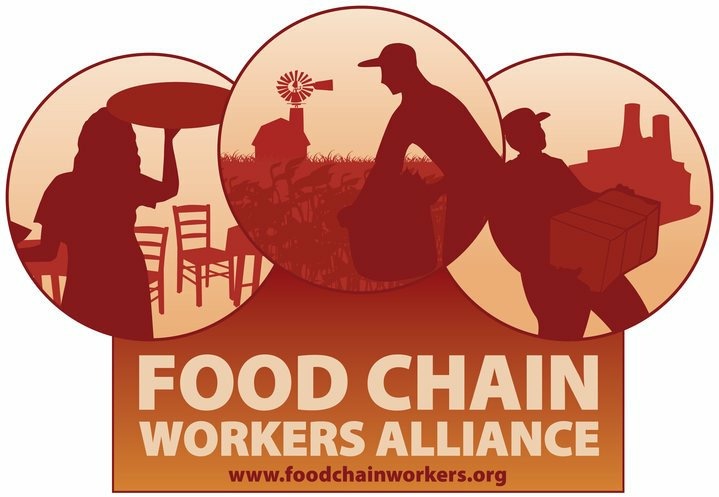THE RIGHT TO ORGANIZE
The right to organize our workplaces is fundamental, but our current labor laws create huge barriers for food workers to act collectively on the job. To meaningfully be able to exercise this right, food workers need innovative new legal tools to bargain across industries and sectors and set industry wide fair wages. Barriers to collective action such as national and state exclusions for farmworkers for the right to organize and prohibitions on secondary boycotts must be removed. All workers need the right to collective action on the job, regardless of how their employer classifies (or mis-classifies) them. Finally, we need to create fair systems for joining a union, such as “card check” recognition that are free from employer intimidation and abolish anti-worker “right-to-work” policies. Workers need the to exercise the right to organize in fair and safe working conditions without fear of harassment or retaliation by employers or the government.
Our members are demonstrating what’s possible when food workers organize. Here are two inspiring examples below:
FAMILIAS UNIDAS PARA LA JUSTICIA
Familias Unidas para la Justicia made history by forming the first independent farmworkers union in Washington State. Watch this video for an excerpt where president Ramon Torres talks about how it all started.
THE BURGERVILLE WORKERS UNION

Burgerville workers have shown how fast food workers can use direct action to build power in their workplace and in the community, despite the many existing barriers to organizing. The union was launched in 2016 with 50+ members across 5 stores in Oregon and Washington.
Since then, Burgerville workers have marched on picket lines, rallied community support, launched a company-wide boycott, and gone on 3 strikes–one of which included 40+ workers across 3 days and 4 stores.
In 2018, the Burgerville Workers Union made history when they won their first union election, and have since won 4 more union elections. The union is still bargaining it’s first contract, but the company recently agreed to an important worker demand of tips and holiday pay. We look forward to celebrating BWU’s historic first contract soon!
The union continues to organize with workers across 8 stores, prioritizing deep relationships in the workplace to build power. They strive to improve everyday working conditions while confronting widespread social stigma against fast food workers.
BWU shows how food workers are organizing despite multiple challenges. But with new tools to bargain across industries and sectors and fairer processes to join unions and bargain first contracts, many more fast food workers could build from the important example Burgerville workers are setting!
